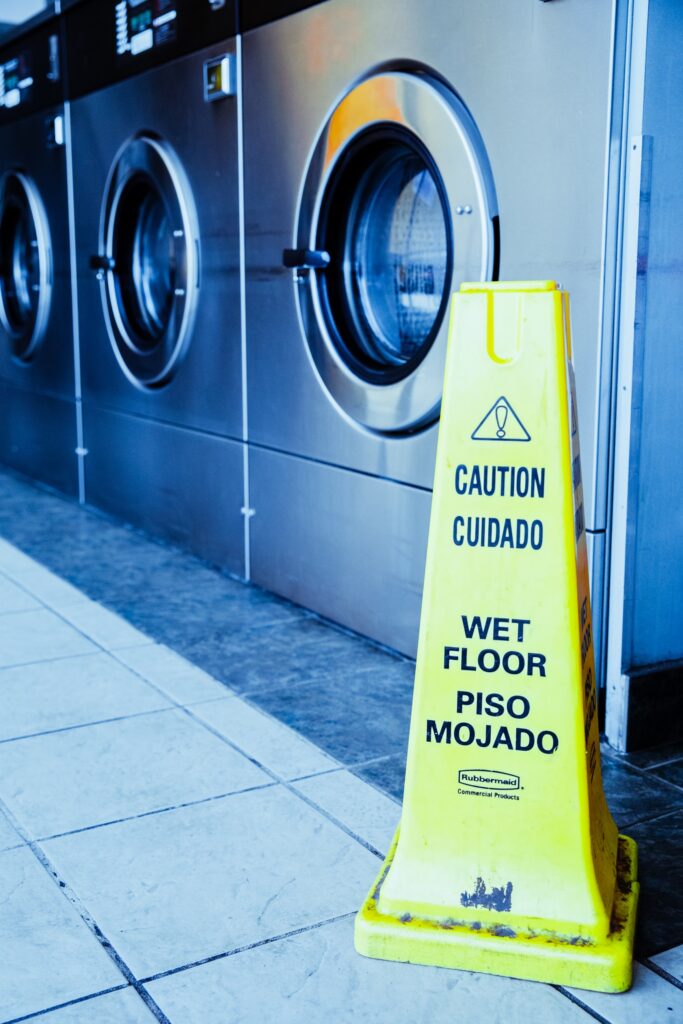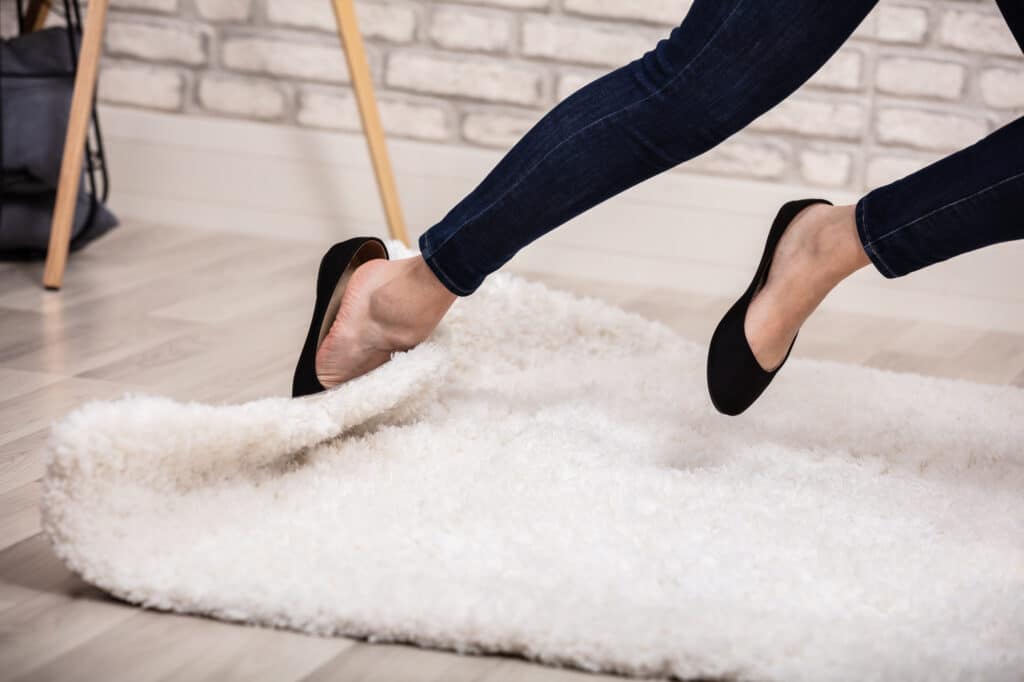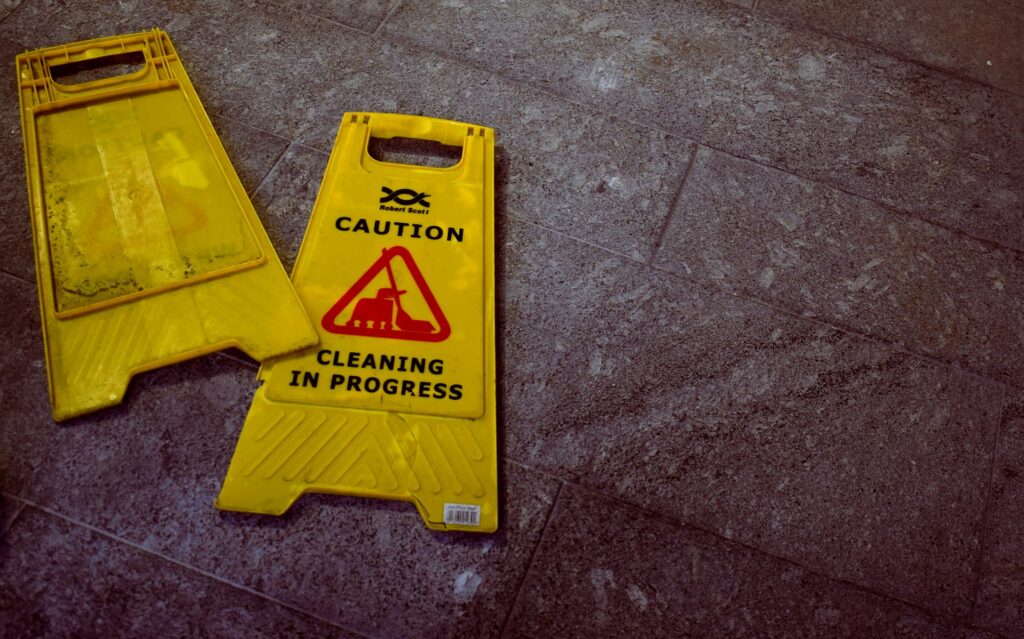Trip and Fall vs. Slip and Fall
Posted on: April 24, 2021A fall is a fall…right?
Not quite. Let’s talk about the difference between a slip and fall and a trip and fall.
You fell, and you were hurt. Does it really matter what you call it?
As it turns out: yes!
Understanding the difference between a slip and fall and a trip and fall can make all the difference in the outcome of your personal injury case.
In this article, we’ll cover the difference between these two similar incidents and why it’s important for you to use the right terminology.
What Is a Slip and Fall?
Slip and fall accidents generally occur when there is a loss of friction on your walking surface.
For example, a floor that has been recently mopped or waxed would create a slip hazard. A hallway littered with marbles would also put one at risk for a slip and fall.
When this happens, you don’t have as much “grip” on the floor as you expected, and your feet slip out from beneath you. In most slip and fall cases, the victim falls backwards.

Common Slip and Fall Injuries
In most slip and fall accidents, we tend to see certain types of injuries.
- Sprained wrists – As you fall backward, most people put their hands behind them to break their fall. This sudden force can hyperextend the wrists.
- Sprained ankles – The action of your foot sliding out from underneath you can place excess pressure on the ligaments, tendons, and muscles in your ankle.
- Shoulder injuries – Many people try to grab onto nearby objects to prevent them from falling and end up dislocating their shoulder or tearing their rotator cuff.
- Head injuries – A blow to the back of the head can cause fractures, concussions, or a traumatic brain injury.
- Neck injuries – Even if your head manages to avoid hitting the ground, it may still place excess force on your neck, causing strains, sprains, or herniated discs.
- Spinal/nerve injuries – Your entire spine—from your neck to your tailbone—can be injured in a fall. When this happens, the vertebrae can also damage the surrounding nerves.
- Fractures – Broken hips, elbows, shoulders, and wrists are all common slip and fall injuries.
What Is a Trip and Fall?
A trip and fall, on the other hand, is often caused when there is an obstacle in your path.
An uneven sidewalk, large change in elevation, or any item left on the floor is a tripping hazard, especially if you don’t notice it.
When you trip, your feet are prevented from moving while momentum carries the rest of your body forward. As your center of gravity shifts forward, you topple because you are unable to bring your feet forward to stop your fall.

Common Trip and Fall Injuries
Because of the objects in the way, trip and fall injuries tend to differ from slip and fall injuries.
- Cuts, scrapes, and bruises – The presence of certain surrounding objects and surface material can cause abrasions, wounds, and bruising. Skinned knees and scraped hands are common.
- Hand/wrist injuries – During a backward fall, the impact is shared between your hands and your bottom. But when you trip, it is typically your hands that make the first contact with the ground. This can cause wrist sprains, broken fingers, and more.
- Foot/ankle/knee injuries – Injuries to your feet, ankles, and knees are common as they impact the ground and/or surrounding objects.
- Neck injuries – As you fall, momentum keeps your head moving forward, even as your body is coming to a stop. This places a lot of stress on your neck.
- Fractures – Broken limbs are common fall injuries, particularly among the elderly.
Why Does It Matter?
Both slip and fall and trip and fall accidents can cause serious injuries, so why does it matter what you call them? Aren’t the two terms interchangeable?
While these two incidents might be similar in the eyes of a layperson, the justice system makes a distinction between them. And if you plan on filing a premises liability lawsuit, accuracy will be crucial.
Why?
Trip and fall injuries tend to be quite different from slip and fall injuries. Lawyers—whether they’re working for the plaintiff or the defendant—know which injuries are more common for specific types of accidents.
The other party’s attorneys will do anything they can to make you appear unreliable in your testimony. Saying “I slipped” after you already said, “I tripped” gives them all the ammunition they need to tear your story apart.

Slip/Trip and Fall Lawsuits
Whether you visit a business, city-owned park, or privately owned property, you have the right to safety.
If that safety was compromised and you were injured as a result, you may have grounds for a premises liability claim.
Slip/trip and falls do not occur in a vacuum; the resulting injuries can have serious, long-term effects on your health and livelihood. Filing a personal injury lawsuit can help you receive the compensation you deserve.
Commonly cited damages include:
- Past and future medical bills (including surgery and prescriptions)
- Loss of income
- Loss of earning capacity
- Loss of consortium
- Disability
- Mental, emotional, or psychological anguish
- Pain and suffering
If the property or business owner was aware of the danger posed to visitors, yet did nothing to fix the issue or warn visitors, a personal injury lawsuit can also act as a deterrent for future negligence.
Conclusion
We have yet to see two personal injury cases that were alike. Different locations, injuries, and life circumstances make each and every trip and fall or slip and fall case unique.
When you have been seriously hurt through someone else’s negligence, financial compensation may be the one thing keeping a roof over your head and food on the table. Hiring a personal injury attorney gives you the best chance at maximizing your settlement offer.
The attorneys at Beers & Gordon have nearly 70 years of experience defending both insurance companies and assisting injured victims. When we did defense work, we represented most major hotels and numerous retailers and shopping malls. Everything we have learned in the past, we bring to your case so that you get the best possible outcome.
Call today to schedule your free consultation with a licensed attorney.







